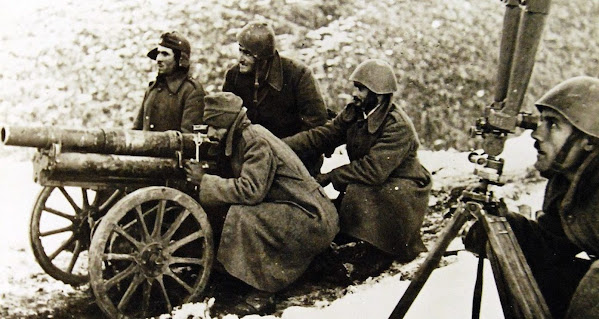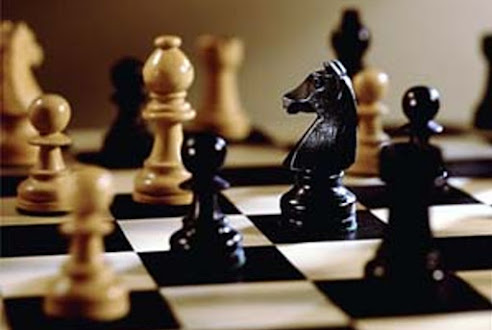Monte Piana ("Flat Mountain") in the Italian Alps. A bloody and protracted battle was fought there during WWI between the forces of Italy and of Austria-Hungary. One more example of how often history rhymes. This ancient battle may tell us something about the current situation in Ukraine
Monte Piana in Northern Italy is a place that deserves to be seen, It is a strange mountain with a flat plateau at the top, located in the middle of the rugged Dolomite Mountains. An eerie place that still maintains relics of the bloody battles that were fought there between 1915 and 1917.
There is a dirt road that takes you to the top, at over 2200 meters in height. There, you can walk along the gentle slope of the plateau, an area of less than one square km. It is difficult to imagine how so many people could have fought and died for that chunk of land. And yet, it happened. The number of casualties is unknown, but it is estimated as between 10,000 and 20,000, some say many more. If the ghosts of all the dead were to congregate together on the plateau, they would form a crowd of the density that you may see in a city park on a warm Sunday. Maybe they do that on moonless nights.
On the plateau, there is very little left of the great battles of more than a century ago. You can see shallow depressions on the ground that, probably, mark the hits of artillery shells. There are traces of old trenches and fortifications, wood splinters that, probably, were part of barracks or fences. It takes a certain degree of imagination to picture in your mind how life must have been for those men who found themselves stranded there, surrounded by spectacular mountains. A scenario of incredible beauty. The kind of beauty that kills.
The story of the battles of Monte Piana is simple: it was an open-air slaughterhouse. The Austrians occupied the North Side, the small plateau, while the Italians occupied the Southern side, the larger one, The two plateaus were separated by a natural trench that marked the boundary of the two sides during most of the war. The Italians would resupply their forces, and bring back the wounded and the dead, using a road that they built expressly for that purpose (it still exists). The Austrians would do the same on the other side, using a precarious cable car that arrived at the top.
The problem for both sides was that they were in the range of the artillery pieces placed on nearby mountains. Howitzer shells continuously battered the area and that forced both armies to build tunnels in the sides of the mountain, where they would be reasonably safe. But some soldiers had to man the trenches on the plateau, and that meant crouching down all the time, trying to make themselves as small as possible, hoping that the next shell would kill someone else. They could do little more than wait until their unit, reduced to a small fraction of its initial strength, was replaced with a fresh one.
On that miniature battlefield, the Italians were more aggressive than the Austrians and, every once in a while, the survivors of the artillery barrage were told to run toward the enemy with their bayonets. A run toward death: every time, they were mowed down by the Austrian machine guns; one of the slits from where they fired was still there when I visited the plateau, a few years ago. Sometimes, the Italians would be able to gain a foothold in the Northern Plateau. They were always repulsed by an Austrian counterattack.
What's most impressive about this story is how futile it all was. Even assuming that one of the two sides could have conquered the whole plateau (and both did for short periods during the early months of the war), they could not have kept it, and in any case, it would have been useless. Anything placed there in the open would have been blown up to smithereens by the howitzers placed on higher ground around. So, why engage in that absurd battle? Why, instead, not use the troops to fight somewhere where there was a chance to break through the enemy lines? But I can imagine the headquarters of both sides: could someone propose to retreat and leave the plateau to the enemy? Unthinkable: it is a question of National honor.
And so, the slaughter went on for about 2 years. Then, in late 1917, the Austrians broke through the Italian lines at Kobarid (a city that the Italians call "Caporetto") and nearly succeeded in knocking Italy out of the war. The retreating Italian army abandoned Monte Piana and the Austrians occupied it without fighting. About one year later, the starved and demoralized soldiers of the Austrian Empire marched back North. It was now the turn of the Italians to occupy the Monte Piana plateau without fighting. The whole story was futile as it could possibly have been.
I searched the Web for contemporary images of the battle for Monte Piana, but I couldn't find any. In the Italian press, you find almost nothing about the events on the plateau, except for occasional reports of the heroic death of someone there. It seems that two years of useless slaughter went unrecorded and nearly unknown. Not too surprising, since there was nothing to report except about failed attacks to conquer positions that were not worth conquering anyway. So, in terms of the futility of battles, you may take a look at this clip from "Return to Cold Mountain," which shows a scene that may have been similar to the battle for Monte Piana: a massed bayonet attack against a well-defended higher position. Beautiful music, stunning scenery, it may give us some idea of what the futile attacks against the trenches of Monte Piana were.
And now, let's see if this sad story can teach us something about current events. Compare the absurd battle of Monte Piana with the current one, just as absurd, in Ukraine. In both cases, we have a flat area where the fight is dominated by long-range weapons. It was artillery on Monte Piana, it is still artillery nowadays, although more precise, and more long-range, with drones dominating the battlefield. So, the battle has taken very much the aspect of what was World War I. Trenches, soldiers standing there while battered by the enemy artillery, little or no chance to maneuver using tanks or other mobile weapons. The times of Guderian's panzergruppen of WWII seem to be gone, perhaps forever. Recently, the Ukrainians have gained some territory by massing troops on specific objectives along the battle line, but it seems to have cost them dearly. In a certain way, the Ukrainians are behaving like the Italians at Monte Piana, attacking, while the Russians are playing the role of the Austro-Hungarians, defending and counterattacking.
Of course, history never repeats itself, but there is some rhyming, here. If things go nowadays as they went during WWI, the battle in Ukraine will be completely futile, a useless slaughter of young men on both sides. The war will be decided somewhere else. It will end when one of the two sides, NATO or Russia, collapses economically, just like it happened in WWI -- where the economic collapse of the Central Empires eventually gave the victory to the allies.
And now? Who will collapse first? Time will tell, but the useless slaughter continues. And history continues to rhyme, as it always does.
This post is a condensed version of a section of the book that I published in 2018, titled "La Linea d'Ombra della Memoria" (The Shadow Line of Memory) -- in Italian. It tells the story of a forgotten hero of WWI, but it is a wide-ranging discussion of the history of the "Great War."







.jpg)


















